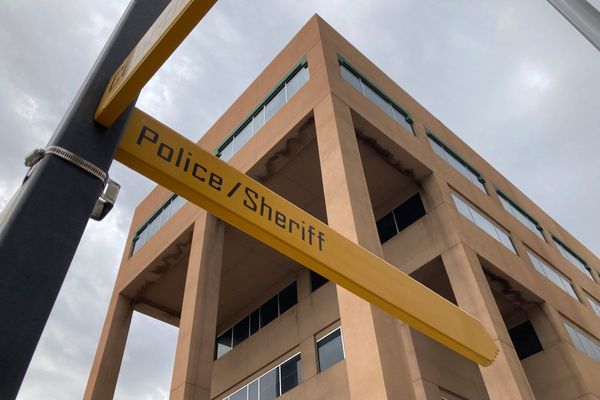
Sao Paulo, Brazil – Saudi Arabia’s investment minister was met with boisterous claps and cheers earlier this year as he gave an optimistic outlook on the potential to deepen his country’s economic ties to Brazil.
Addressing the first-ever, Brazil-Saudi Arabia investment forum in Sao Paulo in July, Khalid al-Falih said that despite the thousands of kilometres separating them, the two nations have more in common than meets the eye.
“Brazil and Saudi Arabia, two proud members of the G20 and energy producers, are well positioned to be strategic partners, with us being the economic leaders of our respective regions,” al-Falih said.
“With our strategic interests aligned and private sectors strong, we could become a top five investor in each other’s economy. I believe this will be possible.”
Flush with cash following a record $161bn profit for state oil giant Aramco last year, Saudi Arabia has ploughed billions in investments into Brazil’s mammoth mining and meatpacking sectors.
While the two countries have long been trading partners, the kingdom’s latest Brazil investments tie in with its ambitious, “Vision 2030” reform programme to diversify the Saudi economy and reduce its dependence on oil revenues, experts say.
“It is part of a broader strategy to enhance, invigorate and expand Saudi Arabia’s global linkages,” said Robert Mogielnicki of the Arab Gulf States Institute, a think tank in Washington, DC.
For Brazil, it is an opportunity to attract Saudi investments in industry and infrastructure, as well as secure supplies of the kingdom’s fertilisers to use for agricultural production.
“There’s a lot of money the Gulf countries have that Latin American countries are willing to attract to their own countries and regions,” said Guilherme Casaroes, a political scientist with Brazil’s Getulio Vargas Foundation.
Fresh deals
Saudi Arabia’s Brazil investments have so far caused none of the public controversy often associated with the Gulf nation over its human rights record, with no significant backlash from rights groups or progressive politicians.
“Brazil doesn’t interfere in the affairs of other countries, it’s a cornerstone of our foreign policy,” Hussein Kalout, who served as secretary of strategic affairs in the government of Brazil’s former President Michel Temer, told Al Jazeera.
The deepening ties have been in the spotlight in recent weeks as Saudi and Brazilian government officials made trips to each other’s countries to discuss greater trade and investments.
Days before the investment forum event in Sao Paulo, Saudi firm Manara Minerals announced its $3.4bn acquisition of a 10-percent stake in Brazil mining colossus Vale’s base metals sector, which includes the nickel, copper and cobalt essential for the production of electric vehicles.
“Manara Minerals aims to contribute to the resilience of global supply chains and accelerate the global energy transition,” the company said in a statement.
The move, Mogielnicki explained, highlights Ridyah’s push to look for ways “to tap into critical mineral supply chains and make sure that they have a seat at the global table”.
Founded in January, Manara is backed by the kingdom’s sovereign wealth fund PIF, one of the world’s largest, which lists the Brazil investment programme on its homepage.
Meanwhile, in late July, Brazil’s Agriculture Minister Carlos Favaro led a delegation to Saudi Arabia, after which he said the kingdom had authorised Brazil goat imports.
Around the same time, Brazilian meatpacking giant BRF agreed to enter a joint venture with PIF-backed Halal Products Development Company, days after another PIF subsidiary, SALIC, acquired a 10.7-percent stake in BRF, according to the Reuters news agency.
“What we see is that with Brazil-Saudi investments, there are no borders,” said Tamer Mansour, head of the Arab-Brazilian Chamber of Commerce, a Sao Paulo-based business association.
New geopolitics
Saudi Arabia and Brazil have been each other’s main trading partners in their respective regions for decades, with trade on an upward curve since the 2000s.
Brazil – itself a major oil producer – mostly buys Saudi oil and fertilisers while the Gulf country mostly buys meat from Brazil, the world’s largest exporter and producer of halal meats. The two countries have had embassies in Jeddah and Brasilia since 1973.
But in recent years, the partnership has deepened: In early August, Saudi Arabia invited developing nations, including Brazil and Argentina, to a meeting in Jeddah to seek support for Ukraine’s peace plan amid the Russian invasion.
Later that same month, Saudi Arabia was invited to join the BRICS economic group, of which Brazil is a founding member, but has not yet confirmed its ascension.
Despite some recent, high-profile hostilities between Riyadh and Washington, most analysts do not perceive Saudi Arabia’s deepening ties with countries such as Brazil and China as a snub to traditional partners, such as the United States and Europe.
“They are not investments in competition,” Kalout said of the kingdom’s traditional investments, such as UK real estate or US government bonds. “It’s just that their economic matrix has expanded.”
But analysts also say that Saudi Arabia and other Gulf countries’ growing interest in Brazil reflects wider geopolitical changes in the wake of Russia’s war in Ukraine and growing tensions between the US and China.
“This recent intensification of Saudi Arabia looking to invest more in Brazil, it’s a consequence of the change in the economic geography of the world,” Kalout told Al Jazeera.
Controversy
Still, the burgeoning business ties are not totally without controversy, at least on Brazil’s part.
The country’s former President Jair Bolsonaro has been embroiled in a scandal involving undeclared diamond jewellery received by an aide in 2021 and the sale of two luxury watches, all gifted by Saudi Arabia while Bolsonaro was in office.
The far-right leader, his wife and several allies were called in to testify before federal police at the end of August but chose to remain silent, according to local media reports. Some legal experts have speculated that Bolsonaro could face embezzlement charges.
Meanwhile, some analysts remain sceptical about the potential of the Brazil-Saudi relationship as the Gulf nation seeks out new partnerships in the face of criticism of its rights record.
Yet ultimately, Casaroes at the Getulio Vargas Foundation told Al Jazeera that business pragmatism, as opposed to ideology, would likely guide the relationship’s growth.
“Brazil will sell food, sell resources and get some investments. That’s probably how it’s going to look like in the upcoming years.”







